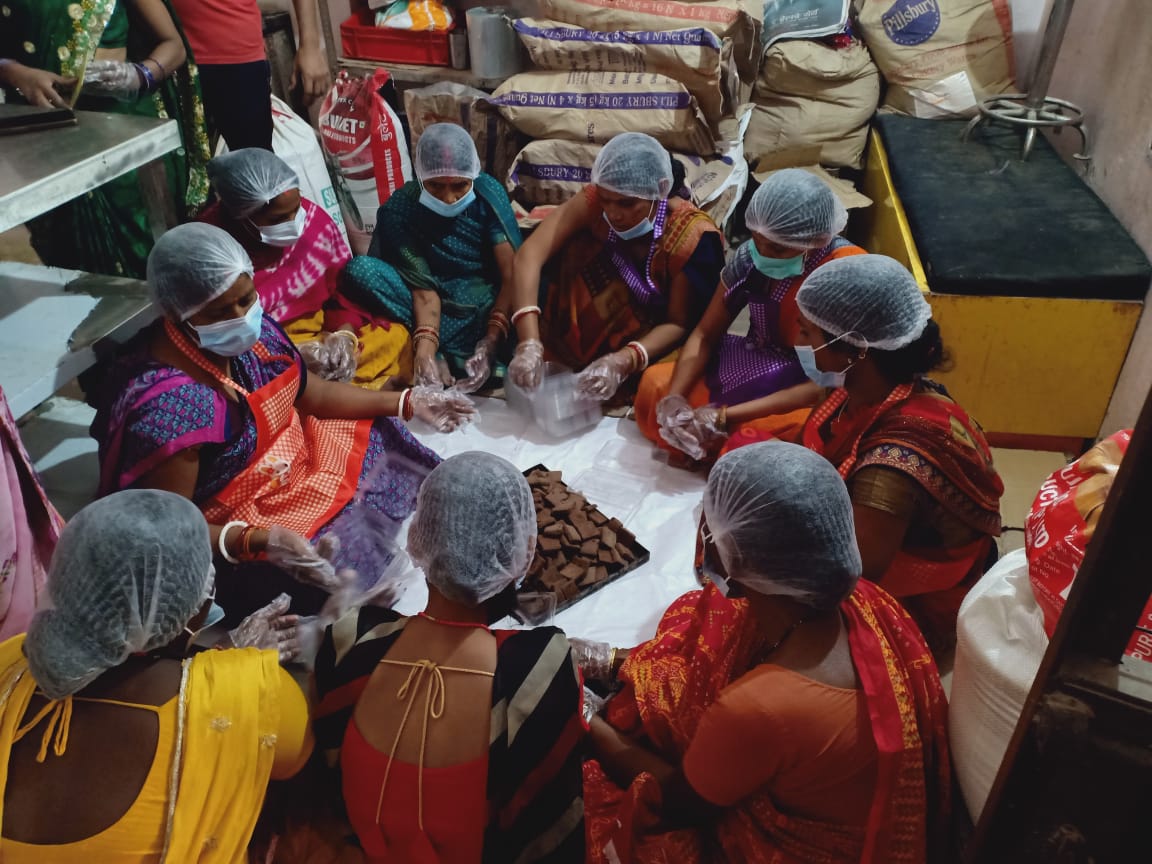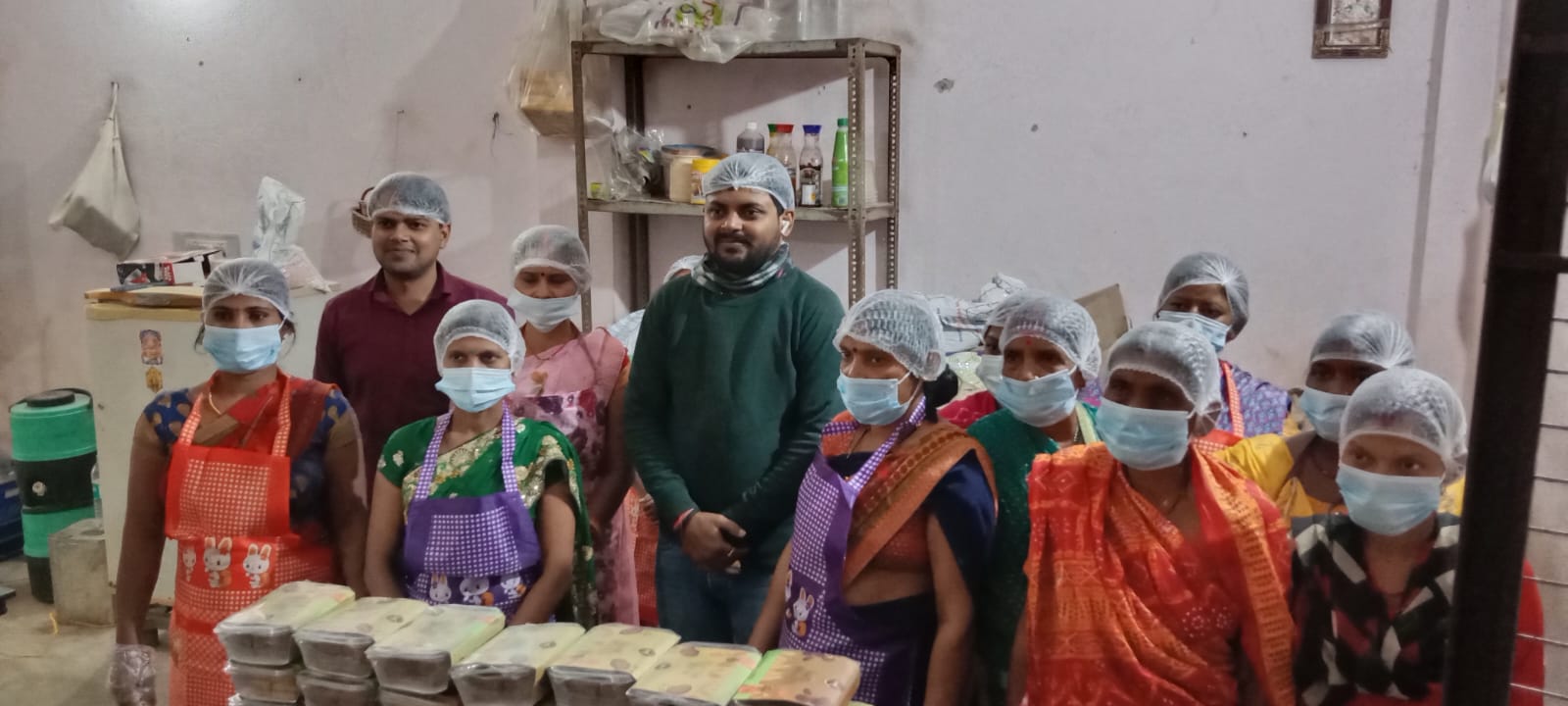“Follow your heart and do what you want. If you don’t want to work under someone, finish your engineering and come back home.”
These were the last words Ashish Ranjan’s mother spoke to him. She passed away a few days later. Even though his brother and other relatives urged him to find a job, his mother’s words rang in his ears.
Following her advice, he returned to Patna, Bihar, to try his hand at entrepreneurship. In 2018, he started an online cake business called the ‘Online Cake Bhejo’ (OCB) with his friend Buddhisen Bittu, which delivered cakes from different bakeries to homes across the city. While the business was a hit, relying on products manufactured by others had their own shortcomings, the biggest being quality.
Despite setting up checks and balances, 31-year-old Ashish was not satisfied with what he was doing. He wished to provide good quality products to the residents of Tier-2 and 3 cities in Bihar.
In the meantime, another thought was brewing in his mind – to provide a livelihood to women farmers. Why should one train chefs who will ultimately quit when one can train women from the rural areas to make such products, he wondered.
Armed with an idea, he set up a manufacturing facility, built technology to create proper supply chains, and set up self-help groups for women in villages across the state. Today, OCB cakes has over six outlets in Bihar and three in Uttar Pradesh. They make cakes, pastries, breads, buns, cookies and more with millets like jowar, ragi, bajra and wheat.
Employing over 50 people, OCB Cakes closed FY 2023-24 with a turnover of Rs 1.5 crores, according to Ashish Ranjan.
Empowering female farmers
Pursuing his final year of computer science engineering in Haryana, Ashish had two papers to complete when his mother passed away. He had just started working in a new job but didn’t like the work environment and the way his seniors spoke to him. His heart lay in returning home and setting up a business.

“My father was a government employee. There is no entrepreneur in my entire family due to which this path seemed scary to everyone. However, my parents were completely supportive of my decision,” Ashish shares with The Better India.
After his mother’s death, he didn’t feel like completing his engineering degree, and dropped out. He wanted to spend time with his father and support him through the tough time. At the same time, he started OCB, which was then an aggregator delivering cakes.
Through this time, his father stood by him like a rock. Every day, when Ashish returned home, he would ask him how it went today.
“Initially, we would have just two or three orders per day. Whenever I felt dejected, it was my father who encouraged me and gave me the strength to keep going,” he says.
Even as they started getting more orders, there remained an issue of quality.
“We tried doing quality checks with vendors but it just didn’t work. I would not be okay serving bad quality cakes to people in my house. How could I serve that to some other child?” he adds.
He shut down the bakery business and went back to the drawing board. His mission was simple – deliver hygienic, healthy, tasty cakes and bakes to Tier 2 and 3 cities.
While searching for healthy options, an ingredient which caught his eye was the humble millet. At the time, he came across a lady from Jharkhand who was making millet cookies. Inspired, he decided to focus on millet-based products.
Bootstrapping the business with Rs 20,000, he started a bakery with some chefs and few products. However, it was difficult to sustain as the chefs would frequently quit. Also, running a bakery chain in India required a lot of investment for which he applied for seed funding from the government under the Bihar Startup Policy. After receiving a grant of Rs 10 lakh, he set up a manufacturing facility.
The next step was sourcing millets, for which he reached out to Farmer Producer Organisations (FPOs) in Bihar and Jharkhand. While speaking to them, he found that a lot of the small farmers, who were women, were struggling to manage their livelihoods.
“There are a lot of women smallholder farmers who are struggling economically. During my interactions with them, I found that they were willing to learn new skills. We hear of home bakers in cities, why not create home bakers in villages?” says Ashish.
In a mutually beneficial relationship, he set up self-help groups, which he calls ‘She groups’ in villages, where the women are trained to make cookies and bread. OCB provides the equipment, takes safety precautions, and connects them to the market channels to sell their products. The women process the millets, make the cookies, pack them and give it to the distributors. These She groups are self-sustaining and have co-ordinators, who distribute the packed materials.
“They get a livelihood while we get our chefs,” he adds.

Nisha, one of the She workers who make the millet bakery products, says that this job has helped in the education of her four children.
“I used to work in a tile shop earlier but took a break as my children needed me. My husband is a farmer and we were struggling to make ends meet. I’ve been working here for over three months and really enjoy this job,” she says.
To set up the She group facilities, OCB received a grant of Rs 20 lakh under the Rashtriya Krishi Vikas Yojana (RKVY) and were incubated at the Bihar agricultural university under the agripreneurship programme.
“We work with jowar, bajra, ragi. The millets are procured from the farmers directly and processed at our facilities. We make cookies, muffins, brownies and dry cakes out of millets. We add no preservatives or maida in any of these products,” claims Ashish.
A 300 gram pack of millet cookies costs Rs 150. They’ve also launched a ‘brown bread done right’ which includes millet flour too.
“We worked on perfecting this bread for months on end. It’s not easy to make bread without maida. We use wheat, ragi flour and a pinch of maida to make the bread fluffy. We don’t use any artificial colours to achieve the brown colour,” he adds.
Each OCB cake store has a healthy food zone, where the products made by the She groups are displayed and sold. The bakery chain has two self-owned stores, five franchises and three she group stores.
Besides these millet items, the bakeries offer customised cakes, pastries, breads, buns and more. They offer gifting solutions and deliver pan India based on orders.
Going forward, Ashish hopes to create employment opportunities for more female farmers and deliver their products across the country.
While his father passed away in 2018, he remained his son’s biggest cheerleader. He would surely be smiling at his son’s success today.
Edited by Padmashree Pande; Images Courtesy Ashish Ranjan
No comments:
Post a Comment